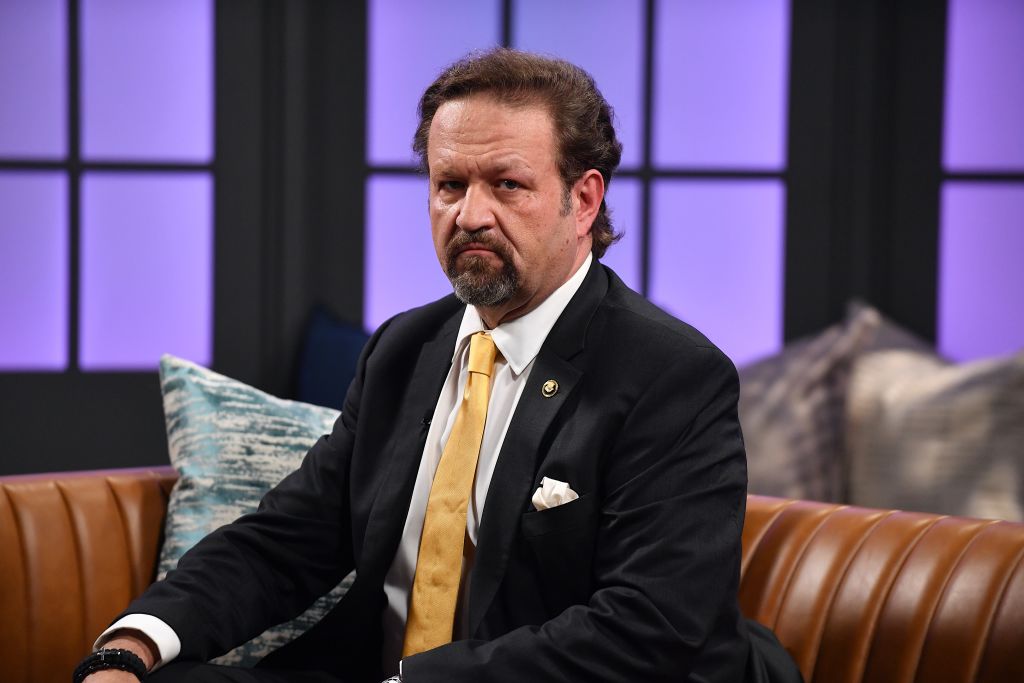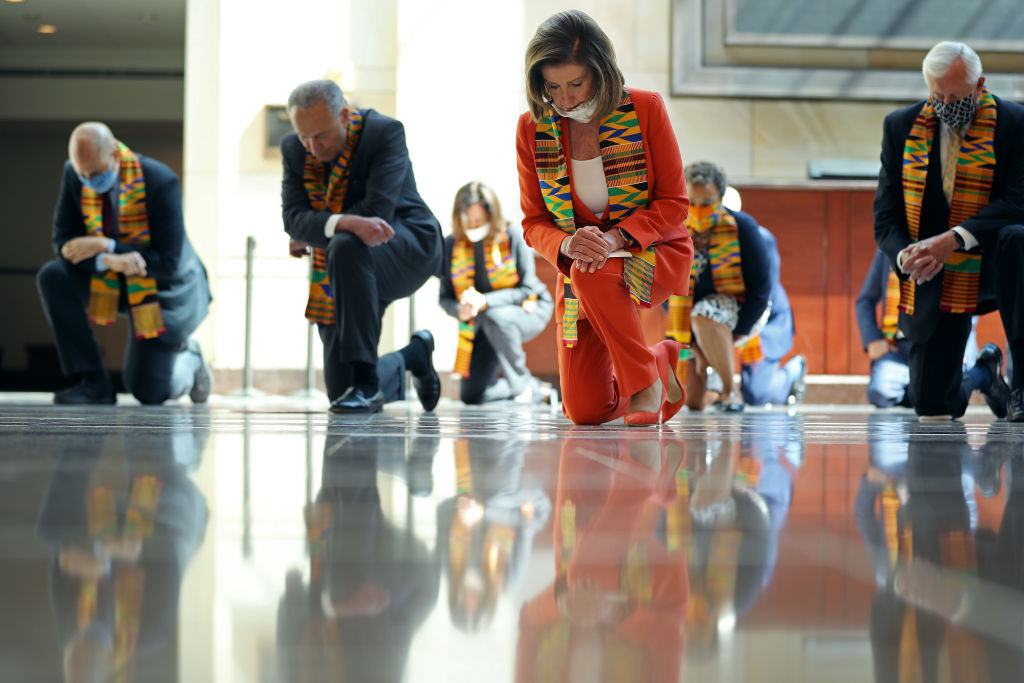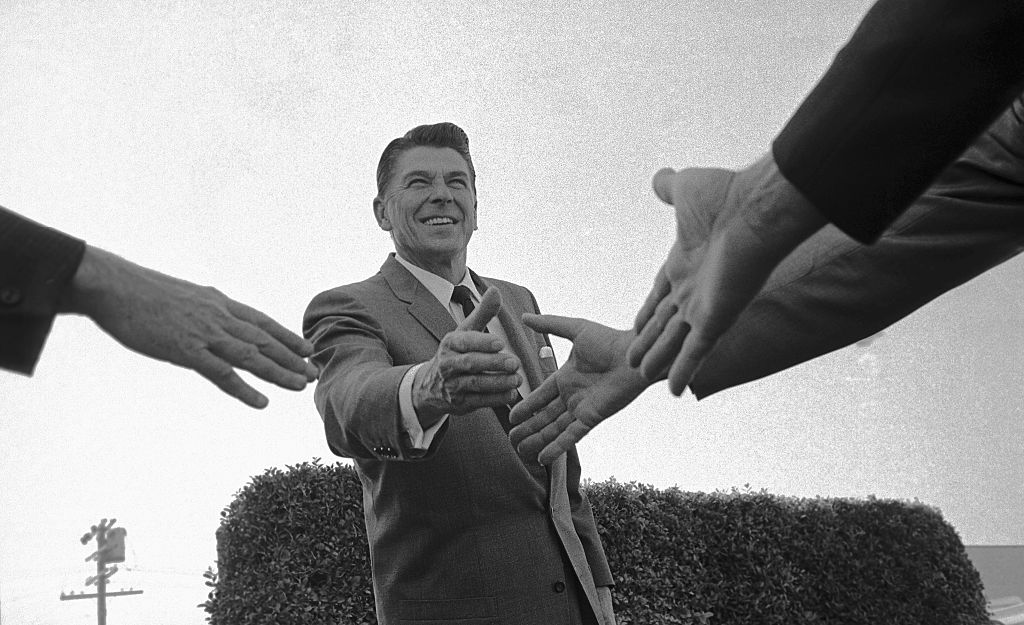The attack on femininity is destructive and drab. Do better.
The Dishonorable Doctor

A case study in claiming undue credit.
One wishes one could go through life without facing such little contretemps, but for reasons known only to the Almighty, human nature is not made that way.
I recently saw Sebastian Gorka at an event at which I rather impetuously, perhaps foolishly, approached him. Foolishly, because I know he hates me.
How do I know? Because for six years now, Seb has been slandering me most vigorously all over Washington, including to many of my friends. One can let things like that go—none of my friends believe him; indeed, they find his constant harping on the subject a combination of amusing and pathetic—and for a long time I did let it go. Why I chose last Wednesday finally to address the issue, I couldn’t really say, except that six years of false and, dare I say, cowardly attacks on a man’s character will take their toll.
But that’s not even why I’m writing now. Seb’s yelling at me in a public venue full of my friends and colleagues would be merely amusing. Except that the next day, he took to his radio show to denounce me on air.
I didn’t listen (travelling) but deputized someone to do so. (You know you have good friends when people will subject themselves to something like that on your behalf.) So the following is hearsay, but this is the report I have, and I trust my source:
Gorka said you were a man without honor and that you had lied about him in front of many people. He said you accused him of having nothing to do with the Warsaw speech and that he had witnesses to the contrary.
I think we can all agree that to be accused of having no honor is to face an accusation that demands a response. So here’s mine.
When I was working for the Trump Administration, in September 2017, the president, as presidents do annually, delivered a speech to the United Nations General Assembly. The speech is best remembered for the president’s strong words directed at North Korean “leader” Kim Jong Un, who was then roiling East Asia with frequent nuclear and missile tests. It’s possible, even plausible, that those strong words led to the diplomatic breakthrough that would allow the leaders of the two countries to meet in person for the first time, twice, the following year.
But all we knew then was that the speech was despised by all the usual suspects and was a big hit with the president’s supporters. Any time a president gives a well-regarded speech, lots of people will want to take credit.
At the time, I held a communications role at the National Security Council. This meant, among other things, that press inquiries about the speech would come to me. And I received several asking: is it true that Sebastian Gorka wrote that speech? I was pretty sure he had not—Seb had never been part of the speechwriting team and by that time had… well, let’s just say, “left” the administration; no need to go into detail. But I needed to check anyway to be sure, and also needed to alert certain superiors.
I also must add that Seb was a rather controversial figure by the time he left, having been accused of many things, most of them scurrilous, and from which I defended him. I don’t regret doing that; it was the right thing to do and many of the attacks on him were not merely false but base. I mention this because the press attempts to connect him to the UN speech were intended to gin up further controversy in the usual guilt-by-association way.
Anyway, since my superiors and I were all travelling together and within arm’s reach, checking the story and alerting them were easy to do. I informed two people above me in the chain of command, one with direct involvement in drafting the speech, of the press inquiries. The latter person was… not happy.
Perhaps a little clarification is in order. I have been a speechwriter, even a White House speechwriter (Seb has not). Part of the code of the speechwriter is to maintain the polite fiction that you don’t exist—that every word coming out of your “principal’s” mouth is his own, drafted by his own hand. Everyone in politics knows this isn’t true, but it’s considered bad form to say so, unless the principal himself gives the writer credit or authorizes him to acknowledge his role.
That had not happened in this case. More to the point, the aforementioned person with direct involvement in the speech emphatically denied that Seb had anything to do with it and demanded that I respond to said press inquiries with a firm denial.
I realized immediately that I was in a bind. Seb is an…excitable character whom I knew would not take kindly, to say the least, to being contradicted in the media, however gently or however true the correction. On the other hand, I believed that my colleague who demanded the denial was telling the truth and, anyway, I didn’t consider myself in a position simply to refuse to carry out a direct order, well within my stated duties, from a superior. I know that sounds quaint for Trump’s Washington, but my (ahem) honor would not permit insubordination.
So I crafted the most innocuous statement I could, naming no names, just saying something like “While of course the speech, like all of his speeches, is entirely the president’s, the initial drafts were produced by his in-house team.” I then carefully, personally, retailed it, one by one, only to those outlets that asked. This little detail is important because it would have been easier, and taken less time, to put out a statement or a tweet, but I wanted the story—and our response—to get as little attention as possible, partly out of consideration for Seb, or at least out of a desire not to get into a public spat with Seb.
Then I forgot all about it. White Houses are busy and there is always something else to do.
Months later I began hearing through the grapevine that Seb was incandescently angry about it and trashing me all over town, including to friends of many decades’ standing. This was unfortunate, but all such friends either asked (rhetorically) “What do you expect from a person like that?” or rolled their eyes in a sort of resigned “good Lord, the Swamp” way. No one blamed me for anything and my reputation seemed not to be suffering so I let it go.
The following Spring (2018), I had left the administration. I was invited to go on TV, as many departing officials are. On arriving at the Fox News DC studios, the first person I saw sitting in the green room (the little lounge where you wait to go on the air) was Seb. Now, at that time, Fox was renovating its makeup and green rooms and the temporary space was extremely small. There was no way to go in there without him seeing me. Concluding that some sort of scene was inevitable, I decided to greet him as a former colleague and let the chips fall.
I offered Seb my hand to shake. He bolted up from his chair and began bellowing in that bombastic voice: “No, I’m not gonna shake your hand! How DARE you try to shake my hand!” and so on like this, so loudly that everyone in that small space was startled. There were, as I recall, in addition to the two makeup artists, four people waiting for their “hits” in TV parlance—all of them names you would recognize. I think that in having this tantrum in front of prominent people, Seb did not do himself any favors.
Anyway, when I could get a word in, I asked, “Seb, what did I do?”
“You LIED about me in the press!”
“When did I lie?”
“You said I didn’t write the Warsaw speech!”
I was suddenly confused. The whole UN speech controversy came back in a flash. Was this crossed wires, false memories, or an attempt to take credit for yet another speech? I tried to explain what had happened, pointing out that the controversy was about the UN and not the (highly regarded) speech President Trump had given in Warsaw in Summer 2017.
But Seb would not listen. He just bellowed and bellowed, making quite the scene, until finally stalking off down the hall to talk on his phone. I took a seat in the green room. No one else there wanted anything to do with that spat (who can blame them?) but contented themselves either with not looking up from their newspapers, like subway riders studiously avoiding a crazed vagrant, or making a wry comment. I did my hit and came back to the green room after to remove the makeup; Seb was not there.
I did, I should add, check on Seb’s claim about the Warsaw speech. Being a former White House official, as long as “your” White House is still in office, you sometimes get asked back for various events. On every such occasion, I always made it a point to visit the speechwriters, whom I greatly admire (and still do). The reason you don’t know their names is that they take their duty to remain anonymous very seriously. These are men of high character whose greatest professional pleasures are doing good work, serving their principal, and helping their country. Anyway, sometime after that little blowup I stopped by and asked about the claim. I think it would be remiss of me to repeat what they said, so I won’t. I will say that my conscience was then and remains clear that I never said anything about those events, either publicly or privately, that was untrue or misleading.
I saw Seb once or twice after that. We never spoke. He would just glare daggers at me. I continued to hear from friends that his behind-the-back trash talk campaign continued but I also continued to let it go.
Until this past week. When I approached Seb this time, he had an even bigger meltdown than the last. It was, frankly, one of the most childish displays I’ve ever seen from a grown man. I attempted over and over to tell him the true story, and to assure him that this was not a fight I sought, but that others had demanded a correction (and had been within their rights to do so). He just petulantly screamed at me that he would not listen, demanded I apologize “publicly,” and called me a “coward” over and over. “Coward”? Even if one entirely believes Seb’s side of the story, in what way does his tale of my behavior represent “cowardice”? I would also ask, is it really cowardly to confront face-to-face a person who has been slandering you for six years?
Seb also, this time (he had not said this back in the Fox green room) added the detail that I had “lied” about him by name, and on television. False memory? Deliberate fabrication? Who knows? In fact, as I’ve already made clear, my statement did not name him, and was delivered only by phone or email; I’ve never talked about him on TV. Indeed, at the time this all initially went down, I still had not made a single TV appearance, either on behalf of the administration or in any other context. When I tried to point out these facts, Seb similarly and explicitly shouted over and over “No, I’m not going to listen to you!”
As to Seb’s specific charges, I think I’ve covered the question of whether I “lied” about him (no). As for having “lied” about him in front of “many people,” if that is supposed to refer to last week’s meltdown, it was really witnessed, or at any rate heard, by only two of my colleagues. Which is something of a miracle given how loudly Seb was yelling, but in a crowded hotel ballroom, it can be hard to hear even bellowing buffoons. But the story got around afterward, and I can confirm that only those two heard anything. Several who hadn’t known about the incident at all told me they were sorry they’d missed it.
As to the question of my honor, I believe I have acted honorably (if, once, perhaps recklessly) throughout this whole affair. To those who want to blame me for recklessness, I ask: does prudence require accepting insult and slander indefinitely? Honest question: I am open to the counterclaim that I should have continued to let it go.
I take no position on Seb’s honor, except to say that he has not behaved well throughout this whole business. Since nearly all of my interactions with him have been on this topic, that has left me with a skeptical view of his character, but I am open to the possibility that there is more to him than this. If so, I haven’t seen it. What I have seen, recently, is Seb yell at me in a semi-public venue and then use a very public venue to denounce me as dishonorable. To call someone dishonorable is itself dishonorable if you are in the wrong, which Seb is in this case. Had Seb confined himself to just yelling at me in the ballroom, I wouldn’t have written this. But he didn’t.
If one wished to draw larger conclusions from all this, I would say, first, that if you are going to take credit for other people’s work, you should ensure that you remember exactly which examples of that work you are taking credit for. Second, if you put people in a difficult position, have a little consideration when they make a sincere effort not to make things harder for you even when you really don’t deserve any such consideration. Third, and best of all, simply avoid problems like this by not taking credit for other people’s work in the first place.
The American Mind presents a range of perspectives. Views are writers’ own and do not necessarily represent those of The Claremont Institute.
The American Mind is a publication of the Claremont Institute, a non-profit 501(c)(3) organization, dedicated to restoring the principles of the American Founding to their rightful, preeminent authority in our national life. Interested in supporting our work? Gifts to the Claremont Institute are tax-deductible.
Our intellectual elite would break us by demanding our assent to the absurd.
Do conservatives know what time it is?



